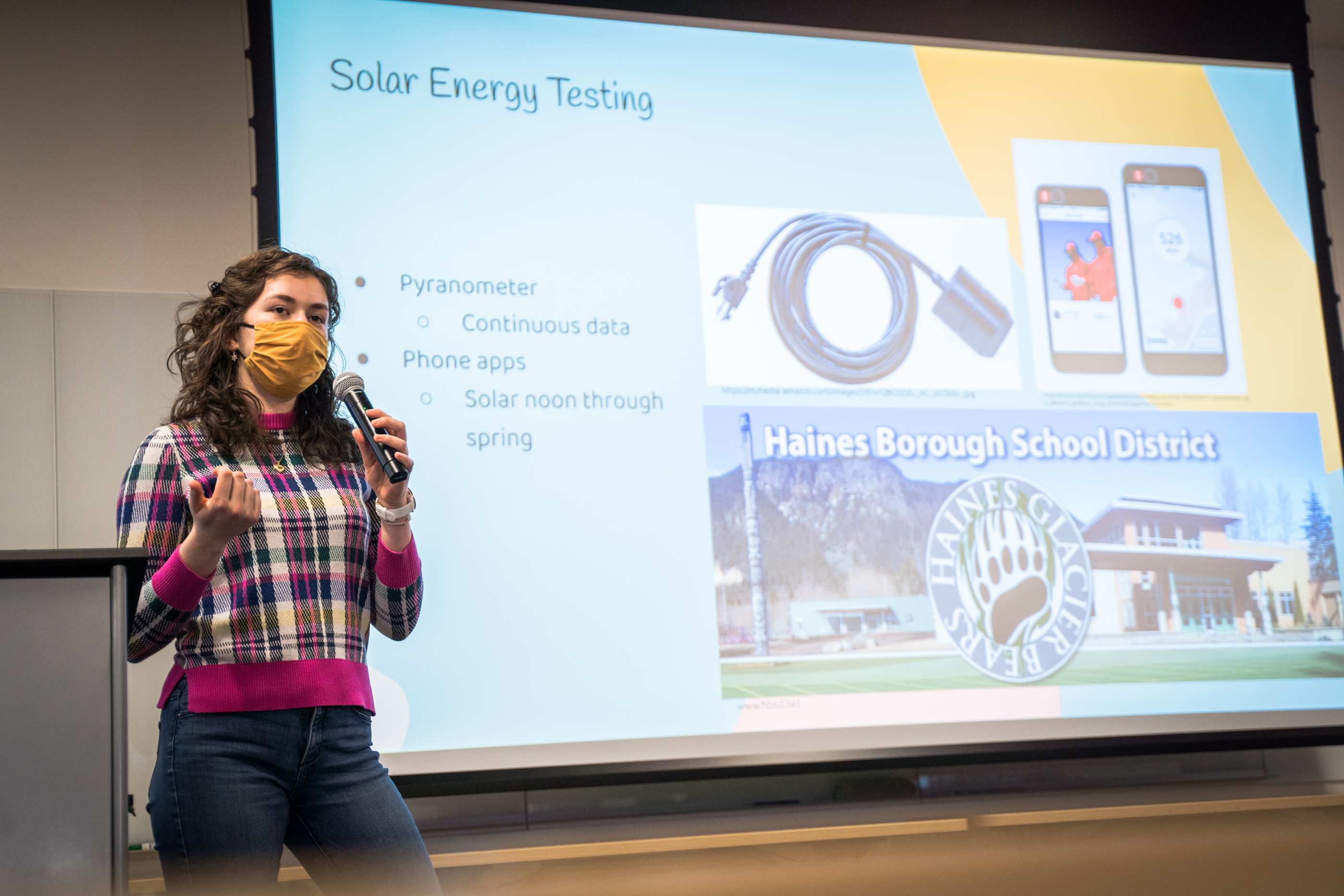URSA Project Helps Communities Understand Their Solar Resources

Before people make the big decision to install solar panels at their home, they will want to know if solar is a good option for them. UAF student and undergraduate research scholar Lydia Andriesen worked with ACEP’s Erin Whitney and researchers from the Solar Technology Program make it easier for Alaskans to find correct information. This week, Andriesen will present her results at the 2022 Research and Creative Activity Days event sponsored by UAF’s Office of Undergraduate Research and Scholarly Activity.
Solar projections and estimates for Alaska communities would be beneficial to those looking into solar energy, but they often come with some uncertainty about accuracy. A free calculator by the National Renewable Energy Laboratory called PVWatts estimates potential performance and costs of solar photovoltaic systems around the world and could prove useful to rural Alaskans looking into solar energy.
The accuracy of this tool at higher latitudes could be questionable, however, so in this URSA project, Andriesen looked at PVWatts estimates compared to historical solar panel data and actual measurements by a pyranometer, a weather station and mobile phone apps in Haines during spring 2022. This project is still underway, but data collected over the past two months and will be presented at the 2022 URSA Research and Creative Activity Day. PVWatts has so far been shown to be surprisingly accurate for this small Alaska town. People throughout our state, not just in Haines, may be able to use the calculator to better understand how solar energy could benefit them and their communities.
Lydia Andriesen presents on her URSA solar project. Photo by Jeff Fisher


